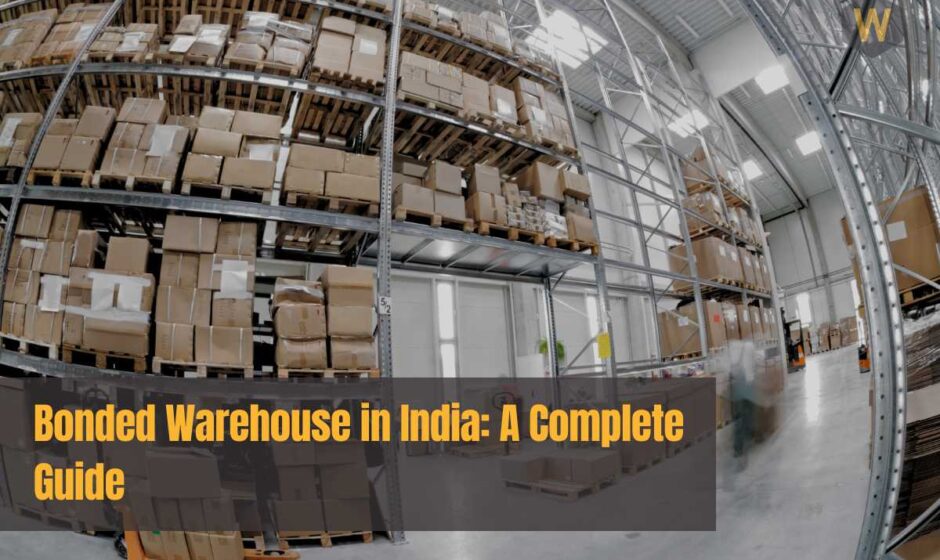What is a Bonded Warehouse?
A bonded warehouse is a secured storage facility where imported goods are stored without the importer needing to pay duties or taxes immediately. These warehouses are typically used by businesses dealing in international trade. The goods are kept until the duties are paid or they are exported to another country. This process provides a financial advantage to importers and exporters, allowing them to manage their cash flow more effectively.
Types of Bonded Warehouses
Government-Owned Bonded Warehouses
These are managed by government authorities. The advantage of using these facilities is the enhanced security and strict monitoring, ensuring compliance with trade regulations.
Private Bonded Warehouses
Owned and operated by private companies, these offer businesses more flexibility in handling their goods. They are often used for storing high-value items or goods requiring special handling, such as perishables.
Advantages of Using a Bonded Warehouse
Deferred Payment of Duties
One of the major benefits of using a bonded warehouse is the ability to defer the payment of import duties. Businesses can store goods without immediate financial pressure, which is particularly useful when dealing with large shipments.
Improved Cash Flow
By storing goods in a bonded warehouse, businesses can delay paying taxes and duties, improving their cash flow. This helps them better manage their resources and make strategic business decisions.
Quality Control
Before paying for import duties, businesses have the opportunity to inspect and ensure the quality of their products. This ensures that any substandard items can be returned or replaced without financial loss.
Flexibility in Distribution
Bonded warehouses allow businesses to store goods close to their target markets without committing to immediate distribution. This is especially beneficial for businesses with fluctuating demand or seasonal products.
Where are bonded warehouses located in India
Bonded warehouses in India are strategically located near major ports, airports, and industrial hubs to facilitate seamless import and export activities. Some of the key locations include:
- Mumbai – Due to its proximity to one of the busiest ports in India (JNPT), Mumbai is a central location for bonded warehouses.
- Chennai – Serving the southern region, Chennai’s warehouses support both sea and air cargo.
- Delhi NCR – This region caters to air cargo with access to the Indira Gandhi International Airport.
- Kolkata – Close to eastern seaports, Kolkata hosts several bonded warehouses for trade with East and Southeast Asia.
- Ahmedabad – As a growing industrial hub, Ahmedabad provides warehousing for both imports and exports.
How Bonded Warehouses Facilitate International Trade
Bonded warehouses play a crucial role in international trade by offering a secure, duty-free storage solution or Free Trade Warehousing Zone (FTWZ). They allow companies to store goods for long periods, reducing the risks associated with fluctuating markets and allowing them to strategize more effectively.
Reduction of Supply Chain Costs
By using bonded warehouses, businesses can consolidate their shipments and reduce transportation costs. Goods can be stored in bulk, awaiting favorable market conditions before being released.
Customs Compliance
Bonded warehouses ensure that goods comply with customs regulations. The goods are inspected and documented properly, minimizing the risk of legal issues during import or export.
Conclusion
Bonded warehouses offer businesses a range of financial and operational benefits, from deferring duties to providing secure storage. Whether you’re an importer or exporter, using a bonded warehouse can be an effective strategy for managing international shipments. They help optimize cash flow, reduce supply chain costs, and offer a reliable solution for customs compliance.
FAQs:
What is a bonded warehouse?
A bonded warehouse is a secure facility where imported goods are stored without paying import duties until the goods are released for sale or export.
What are the benefits of using a bonded warehouses?
D2c eCommerce businesses can defer duty payments, improve cash flow, conduct quality checks, and have flexibility in distribution when using a bonded warehouse.
Who operates bonded warehouses?
Bonded warehouses can be government-operated or privately owned, depending on the business’s needs for security and flexibility.
How long can goods be stored in a bonded warehouses?
Goods can typically be stored in a bonded warehouse for a long period, usually up to five years, or until duties are paid.
Can goods be exported from a bonded warehouses?
Yes, goods can be re-exported from a bonded warehouse without paying import duties, making them a cost-effective option for international trade.
How does a bonded warehouses work?
A bonded warehouse stores imported goods without requiring the importer to pay customs duties immediately. The goods remain in storage until duties are paid or they are exported.
What is the difference between a bonded warehouse and a regular warehouse?
A bonded warehouse allows goods to be stored without paying import duties until the goods are sold or exported. In contrast, a regular warehouse doesn’t offer such tax benefits.
What types of goods can be stored in a bonded warehouses?
Almost all types of goods, including raw materials, finished products, perishable items, and even hazardous materials, can be stored in a bonded warehouse, subject to compliance regulations.
Are there any time limits on how long goods can stay in a bonded warehouse?
Yes, goods can typically stay in a bonded warehouse for up to five years or more, depending on the regulations of the country and the agreement with customs authorities.
Can I store domestic goods in a bonded warehouses?
No, bonded warehouses are specifically for imported goods that are awaiting payment of customs duties. Domestic goods usually do not qualify for bonded storage.
What happens if the duties are not paid for goods in a bonded warehouses?
If the duties remain unpaid after the allowed storage time, customs authorities may seize the goods or auction them to recover the unpaid duties.
Do bonded warehouses offer any additional services?
Yes, many bonded warehouses offer additional services like packaging, labeling, quality inspection, and even light assembly of goods while they are in storage.
Can bonded warehouses store perishable goods?
Yes, bonded warehouses can store perishable goods, often in temperature-controlled sections, provided the necessary facilities are available.
What is a customs bonded warehouses license?
A customs bonded warehouse license is the official permit granted by customs authorities to operate a bonded warehouse. This license ensures compliance with regulations for storing goods under bond.
What is the difference between a free trade zone and a bonded warehouses?
A bonded warehouse is a specific storage facility for imported goods awaiting duty payment, while a free trade zone is a designated area where businesses can operate with minimal customs regulation for trade purposes.
People also read about: Rooftop Solar Panels



